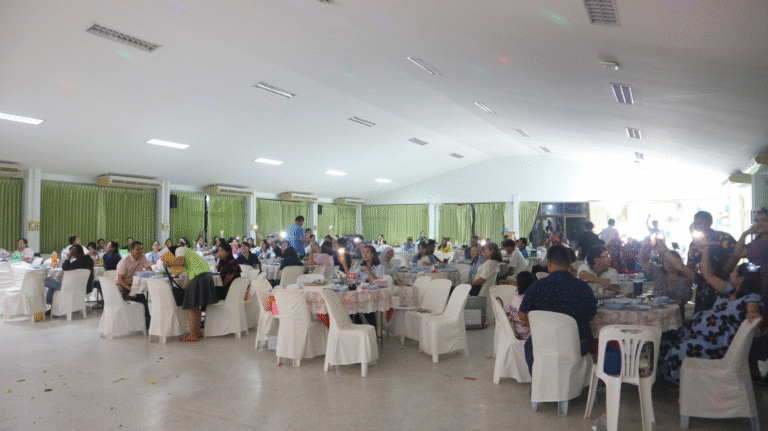Reporters:
Assoc. Prof. Dr. Chatree Homkhiew
Assist. Prof. Dr. Thanwit Naemsai
Assist. Prof. Dr. Thanakorn Damsud
Assist. Prof. Dr. Kosin Teeparuksapun
Evidence Date: during June-Novemnber 2024
Details: 9.4.1
The Office of Innovation, Management, and Technology Transfer (IMTT), in partnership with the Faculties of Industrial Education and Technology, Business Administration, and Engineering, has developed comprehensive practical training programs tailored to meet the evolving needs of industry and commerce.
Boiler Operator Training Program
Time: 9:00 AM – 5:00 PM
Location: Sri Engineering Conference Room, Faculty of Engineering, RUTS
Speakers:
Assistant Professor Wasan Chintada: Lecturer of Mechanical Engineering Program
Assistant Professor Dr. Thanwit Naemsai: Deputy Director of Innovation, Management, and Technology Transfer (IMTT)
The Office of Innovation, Management, and Technology Transfer, in collaboration with the Faculty of Engineering, hosted a training program on Review course of Boiler Operators or Boilers Using Liquid as a Heat Conductor. To effectively review this Boiler Operators course, designed to equip individuals with the knowledge, skills, and certifications necessary for the efficient and safe operation of industrial and commercial facilities, a targeted assessment of its key areas is crucial. The purpose of this review is to determine the course’s strengths and weaknesses in relation to its stated objectives: covering boiler fundamentals, boiler controls and instrumentation, fuel handling and combustion, water treatment and chemistry, boiler safety and emergency procedures, and providing hands-on training and certification.
Course Content (Technical Accuracy & Relevance – Focused on Stated Curriculum & SDG9 Alignment):
The review must first address the technical accuracy and relevance of the course content, specifically in relation to the areas outlined in the course description and critically assess how the course contributes to the principles of SDG9: Industry, Innovation, and Infrastructure. The core components of the curriculum must be evaluated not only for their technical merit but also for their potential to foster sustainable industrial practices and a skilled workforce.
Boiler Fundamentals (SDG9 Relevance: Technological Capabilities): Does the course adequately cover the essential principles of boiler operation, including heat transfer, thermodynamics, and fluid properties as they specifically relate to steam generation? The review should assess the depth and clarity of these fundamental concepts and determine if they are presented in a way that encourages innovation and the application of advanced technologies to improve boiler performance and efficiency. Does the course lay the groundwork for understanding and adapting to future technological advancements in the field?
Boiler Controls and Instrumentation (SDG9 Relevance: Upgrading Industrial Sectors): Does the course provide a comprehensive understanding of boiler controls and instrumentation, including pressure gauges, temperature sensors, level indicators, flow meters, and control systems? The review needs to evaluate whether the course teaches operators how to effectively use these instruments to monitor and control boiler performance, contributing to the upgrading of industrial sectors by promoting efficient and data-driven operations. Does the course emphasize the role of these instruments in optimizing boiler performance and reducing energy consumption?
Fuel Handling and Combustion (SDG9 Relevance: Sustainable Industrialization): Does the course adequately cover fuel handling and combustion principles, including burner types, combustion efficiency, and emissions control? The review should determine whether the course prepares operators to safely and efficiently manage fuel systems, and if it emphasizes the importance of minimizing environmental impact through efficient combustion and reduced emissions. This is crucial for promoting sustainable industrialization and minimizing the industry’s carbon footprint.
Water Treatment and Chemistry (SDG9 Relevance: Resource Efficiency): Does the course provide a thorough understanding of water treatment and chemistry, including water chemistry, scale formation, corrosion control, and chemical treatment methods? The assessment should confirm that the course equips operators with the knowledge to maintain optimal water quality and prevent boiler damage, thereby ensuring the longevity and efficiency of the infrastructure and promoting responsible resource management (water).
Boiler Safety and Emergency Procedures (SDG9 Relevance: Resilient Infrastructure): Does the course prioritize boiler safety and emergency procedures, thoroughly covering potential hazards, safe operating practices, emergency shutdown procedures, and the use of safety devices like safety valves and low-water cutoffs? The review must assess whether the course adequately prepares operators to respond to emergencies and maintain a safe working environment, contributing to resilient infrastructure by minimizing the risk of accidents and downtime.
Hands-on Training and Certification (SDG9 Relevance: Skilled Workforce): The review must verify the nature and quality of the hands-on training provided. Does the course offer sufficient practical experience on actual boiler systems, allowing operators to apply their theoretical knowledge in a real-world setting? This hands-on training is crucial for developing a skilled workforce capable of operating and maintaining boiler systems effectively. What certification is offered and how does it align with industry standards and regulatory requirements, ensuring that the workforce is recognized and qualified, further supporting SDG9’s goals?
In essence, the review process is not just about evaluating a training program, but about ensuring the safety, efficiency, sustainability, and long-term viability of industries that depend on skilled boiler operators. The impact of a thorough and insightful review extends far beyond the classroom, contributing to a safer, more efficient, and environmentally responsible industrial landscape.
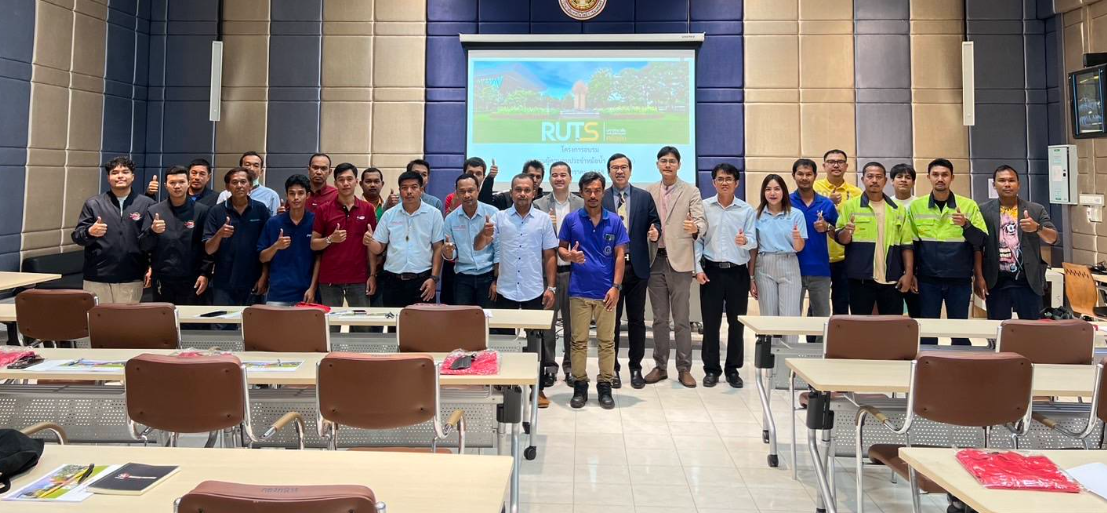
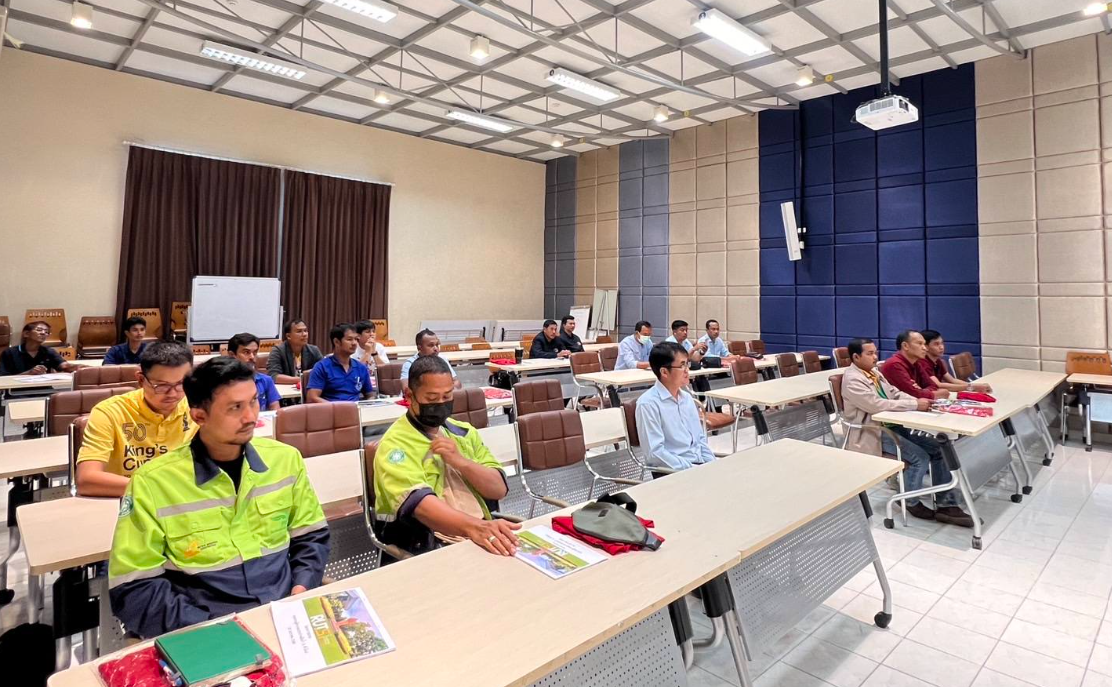
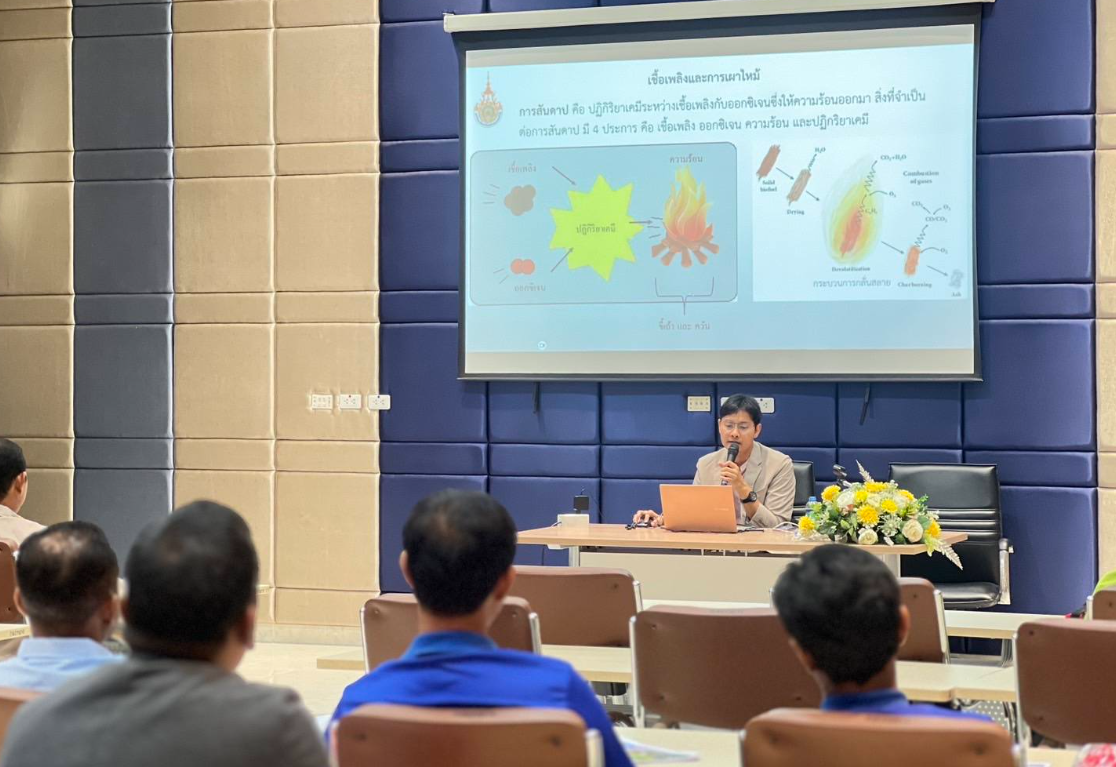
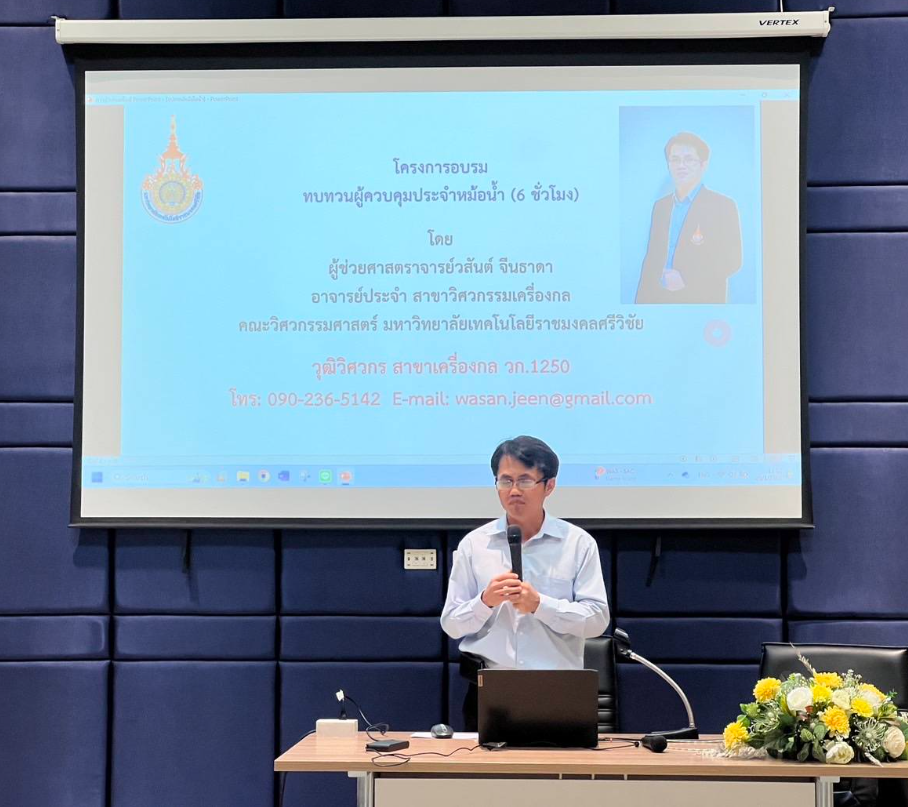
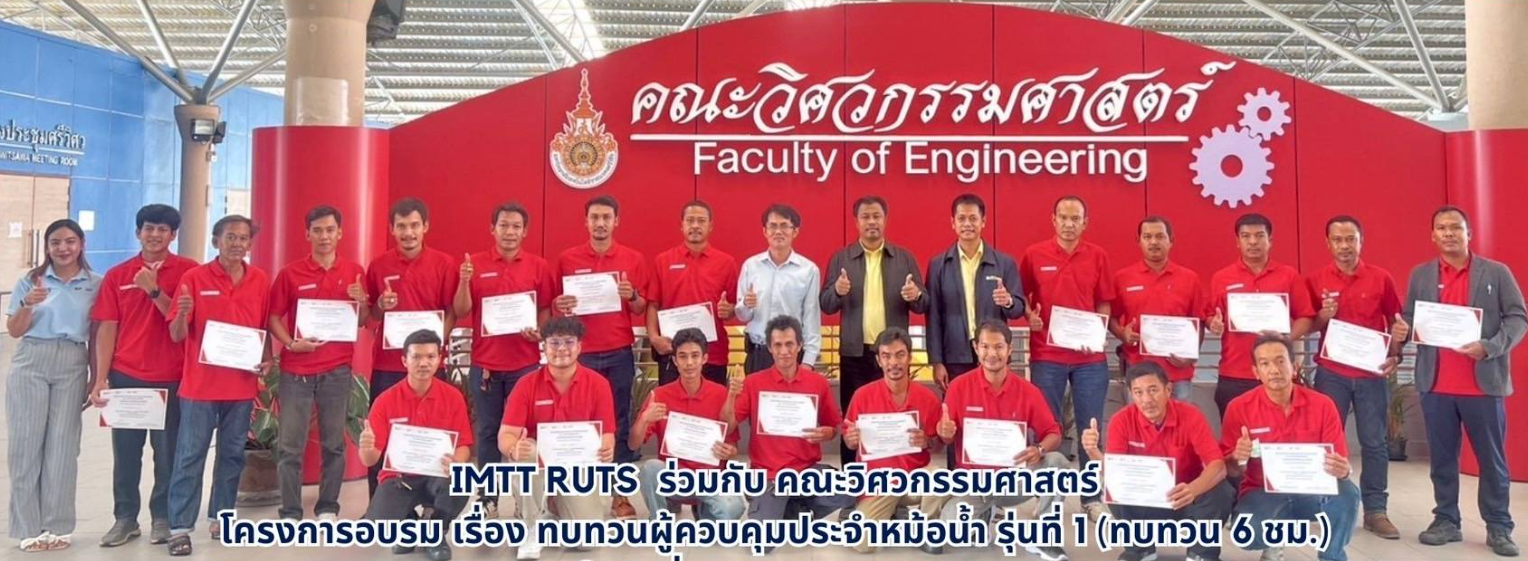
Related Links:
Teaching and Learning
Title: Practical Training in Academic Services with Industry and Commerce
Reporters:
Assoc. Prof. Dr. Chatree Homkhiew
Assist. Prof. Dr. Thanwit Naemsai
Assist. Prof. Dr. Thanakorn Damsud
Assist. Prof. Dr. Kosin Teeparuksapun
Evidence Date: during June-Novemnber 2024
Related SDGs: 9.4
Details: 9.4.1
The Office of Innovation, Management, and Technology Transfer (IMTT), in partnership with the Faculties of Industrial Education and Technology, Business Administration, and Engineering, has developed comprehensive practical training programs tailored to meet the evolving needs of industry and commerce.
Boiler Operator Training Program
Time: 9:00 AM – 5:00 PM
Location: Sri Engineering Conference Room, Faculty of Engineering, RUTS
Speakers:
Assistant Professor Wasan Chintada: Lecturer of Mechanical Engineering Program
Assistant Professor Dr. Thanwit Naemsai: Deputy Director of Innovation, Management, and Technology Transfer (IMTT)
The Office of Innovation, Management, and Technology Transfer, in collaboration with the Faculty of Engineering, hosted a training program on Review course of Boiler Operators or Boilers Using Liquid as a Heat Conductor. To effectively review this Boiler Operators course, designed to equip individuals with the knowledge, skills, and certifications necessary for the efficient and safe operation of industrial and commercial facilities, a targeted assessment of its key areas is crucial. The purpose of this review is to determine the course’s strengths and weaknesses in relation to its stated objectives: covering boiler fundamentals, boiler controls and instrumentation, fuel handling and combustion, water treatment and chemistry, boiler safety and emergency procedures, and providing hands-on training and certification.
Course Content (Technical Accuracy & Relevance – Focused on Stated Curriculum & SDG9 Alignment):
The review must first address the technical accuracy and relevance of the course content, specifically in relation to the areas outlined in the course description and critically assess how the course contributes to the principles of SDG9: Industry, Innovation, and Infrastructure. The core components of the curriculum must be evaluated not only for their technical merit but also for their potential to foster sustainable industrial practices and a skilled workforce.
Boiler Fundamentals (SDG9 Relevance: Technological Capabilities): Does the course adequately cover the essential principles of boiler operation, including heat transfer, thermodynamics, and fluid properties as they specifically relate to steam generation? The review should assess the depth and clarity of these fundamental concepts and determine if they are presented in a way that encourages innovation and the application of advanced technologies to improve boiler performance and efficiency. Does the course lay the groundwork for understanding and adapting to future technological advancements in the field?
Boiler Controls and Instrumentation (SDG9 Relevance: Upgrading Industrial Sectors): Does the course provide a comprehensive understanding of boiler controls and instrumentation, including pressure gauges, temperature sensors, level indicators, flow meters, and control systems? The review needs to evaluate whether the course teaches operators how to effectively use these instruments to monitor and control boiler performance, contributing to the upgrading of industrial sectors by promoting efficient and data-driven operations. Does the course emphasize the role of these instruments in optimizing boiler performance and reducing energy consumption?
Fuel Handling and Combustion (SDG9 Relevance: Sustainable Industrialization): Does the course adequately cover fuel handling and combustion principles, including burner types, combustion efficiency, and emissions control? The review should determine whether the course prepares operators to safely and efficiently manage fuel systems, and if it emphasizes the importance of minimizing environmental impact through efficient combustion and reduced emissions. This is crucial for promoting sustainable industrialization and minimizing the industry’s carbon footprint.
Water Treatment and Chemistry (SDG9 Relevance: Resource Efficiency): Does the course provide a thorough understanding of water treatment and chemistry, including water chemistry, scale formation, corrosion control, and chemical treatment methods? The assessment should confirm that the course equips operators with the knowledge to maintain optimal water quality and prevent boiler damage, thereby ensuring the longevity and efficiency of the infrastructure and promoting responsible resource management (water).
Boiler Safety and Emergency Procedures (SDG9 Relevance: Resilient Infrastructure): Does the course prioritize boiler safety and emergency procedures, thoroughly covering potential hazards, safe operating practices, emergency shutdown procedures, and the use of safety devices like safety valves and low-water cutoffs? The review must assess whether the course adequately prepares operators to respond to emergencies and maintain a safe working environment, contributing to resilient infrastructure by minimizing the risk of accidents and downtime.
Hands-on Training and Certification (SDG9 Relevance: Skilled Workforce): The review must verify the nature and quality of the hands-on training provided. Does the course offer sufficient practical experience on actual boiler systems, allowing operators to apply their theoretical knowledge in a real-world setting? This hands-on training is crucial for developing a skilled workforce capable of operating and maintaining boiler systems effectively. What certification is offered and how does it align with industry standards and regulatory requirements, ensuring that the workforce is recognized and qualified, further supporting SDG9’s goals?
In essence, the review process is not just about evaluating a training program, but about ensuring the safety, efficiency, sustainability, and long-term viability of industries that depend on skilled boiler operators. The impact of a thorough and insightful review extends far beyond the classroom, contributing to a safer, more efficient, and environmentally responsible industrial landscape.
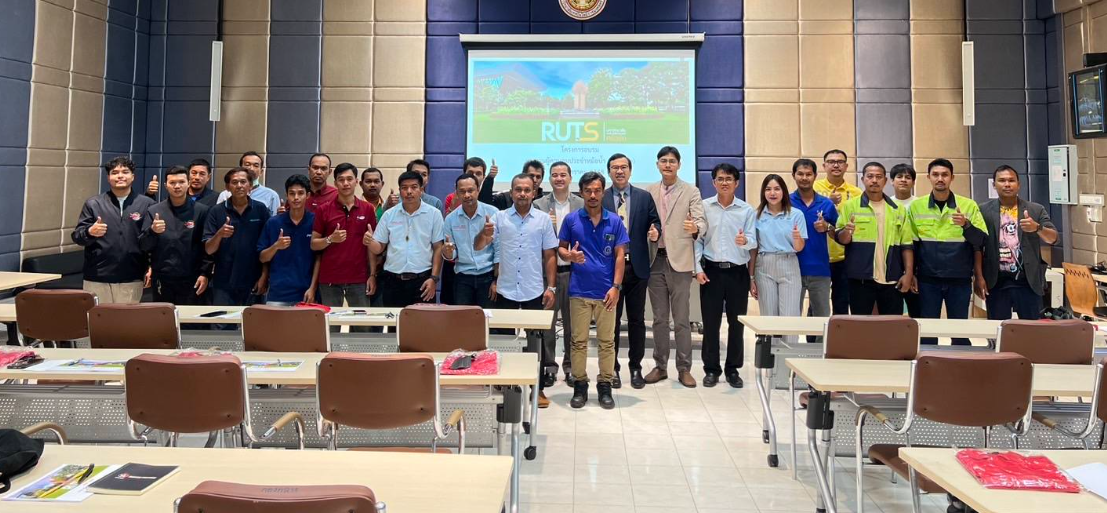
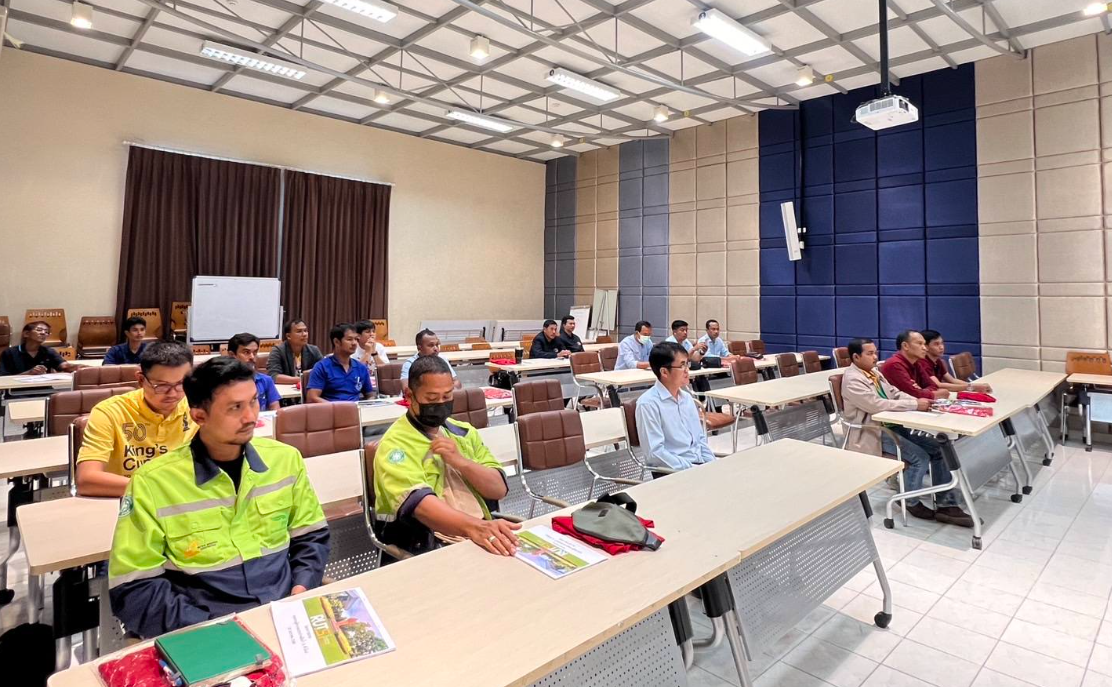
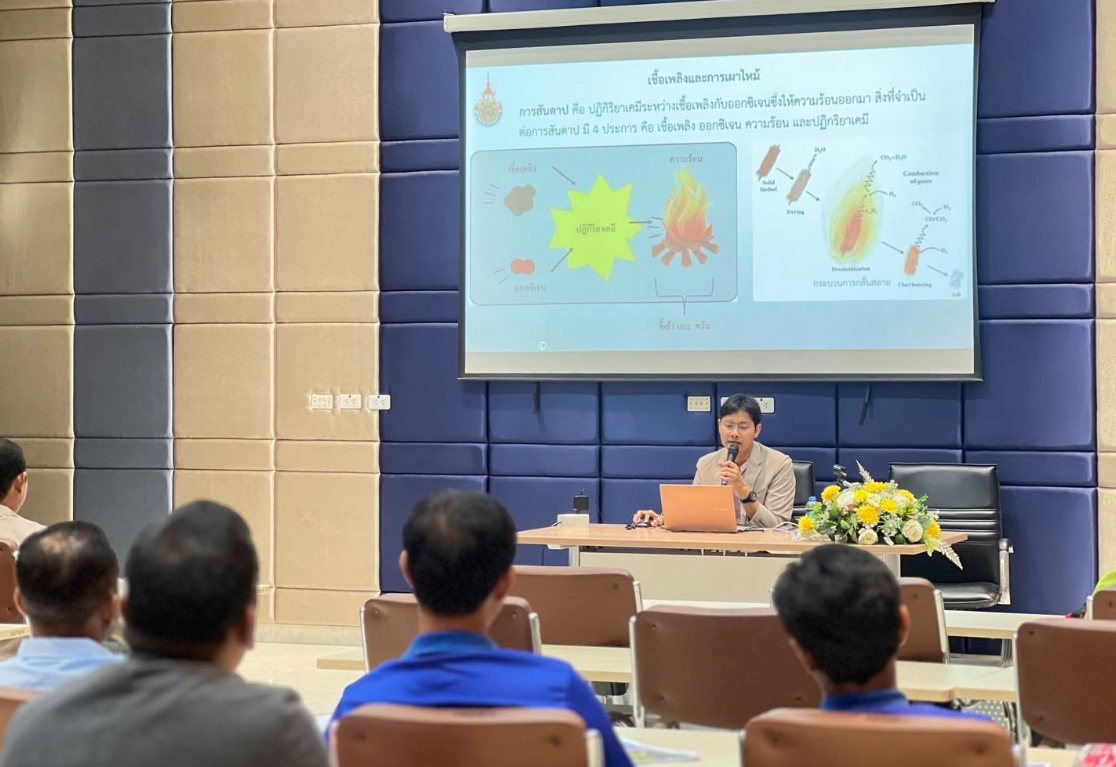
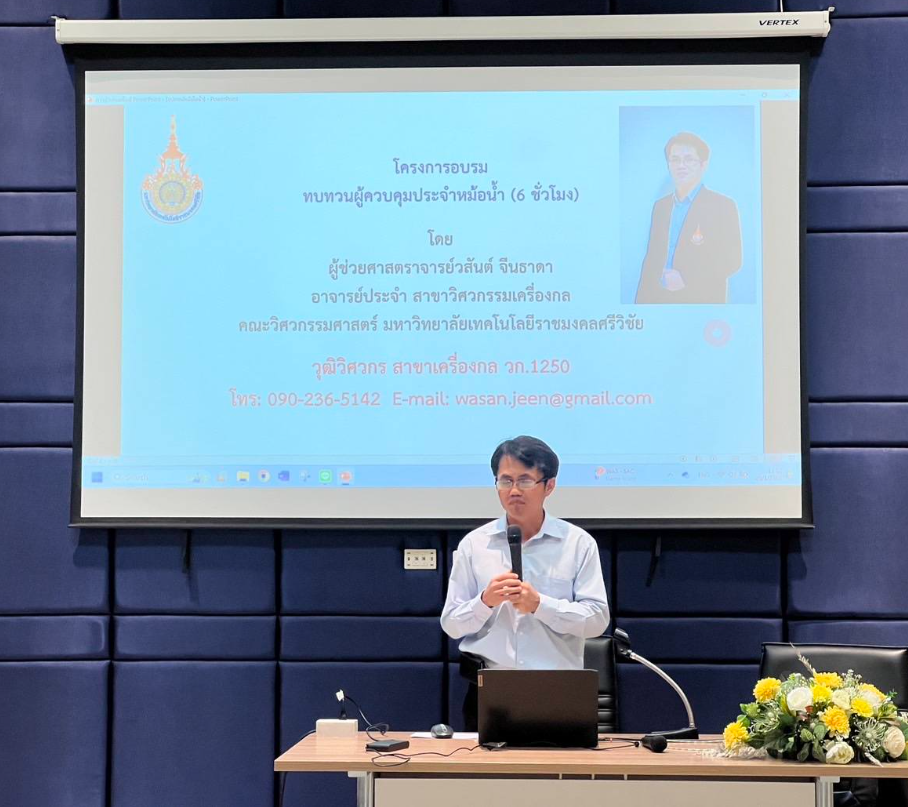
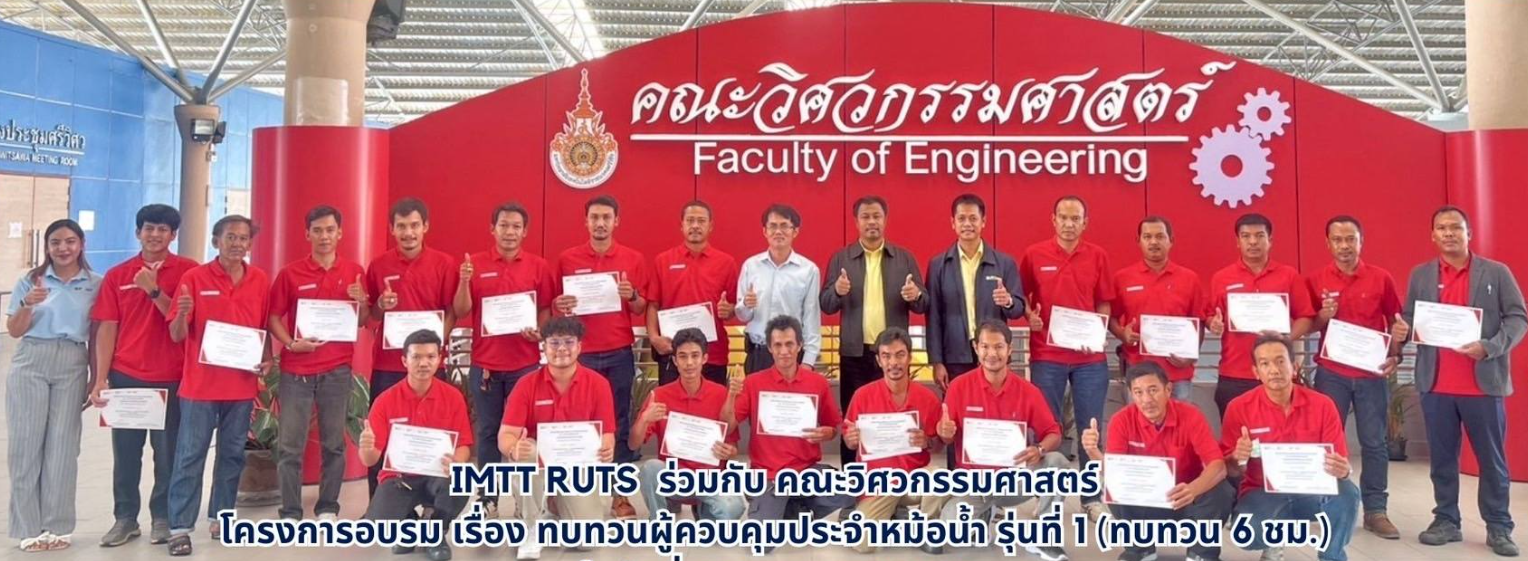
Related Links:
https://www.facebook.com/asu.academic




